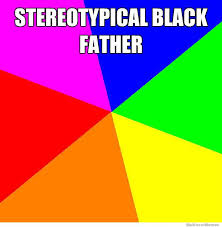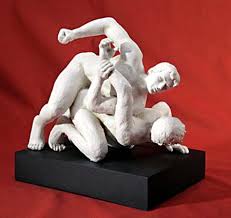Book Reviews
Amazon
This book would have been better titled “Four Funerals and a Wedding”. Amongst other things, Judge Philpot’s fictional autobiography is a thinly veiled racist diatribe. It’s instructive to compare it with his earlier work (Fords Wonderful World of Golf) which describes his dysfunctional upbringing at the hands of his abusive Televangelist father Ford Philpot, and has an unmistakable pervading theme of repressed homoeroticism. The golf-centric book has relatively innocuous racist expressions such as the mocking of ant-apartheid demonstrators who attempt to boycott South African golfers, and even these are balanced by mollifications such as the comically bizarre claim that the young Philpot’s parents abruptly yanked him from a boarding school on catching wind of someone at the establishment uttering the “N” word.
In his latest book, the kid gloves are off. The court cases described are rife with patronizing stereotypes of minorities including promiscuous African-Americans begetting endless streams of kids with random partners. Black characters are generally depicted as angry, irresponsible and “fatherless” murderers when they clash with the judge. Of the ten or so divorcing couples described for entertainment, at least half include a man of color who is demonized as a slimy, oversexed, Lothario or Svengali . (Augusto Fernando, Dr. Gupta Patel, “Dr. T” ,Professor Zhiu Yang, Mr. Dawid and DeJuan Wilder). The
While the book attempts to show a diverse community supporting its hero, token minority characters remain as supporting cast, only portrayed positively if they play the role of “Uncle Toms” by acquiescing through, conformist activities such as:
1. Parroting the judge’s ideology in law school seminars or court hearings (Nicole Mason and her Reverend husband),
2. Inviting him to preach at their Church (The congregation of Mt. Gilead Missionary Baptist Church)
3. Being nudged by the judge to throw an impromptu birthday party for a boy named for slaveholder Jefferson Davis, and son of a racist skinhead (Aaron Morris)
4. Protecting him from physical assault in court (Deputy Clarence Palmer), or
5. Being cured of delinquency by heeding his advice to forgo abortion (Ivory Smith)
The author’s courtroom attitude to black men is obvious through his description of the several young African-Americans who murder each other through the course of the book despite his “mentorship,” as well his alter ego’s observations:
"Judge Z had seen them all in court. All the signs of a bad outcome were there. The gang tats, the drooping pants hanging so low it looked like they had repealed the law of gravity, the hoodies and white T-shirts, the gang signs they flashed to each other. All were black. All were killed by other young black men. ... Every year more young black men were murdered in Lexington. All by other black kids. Not by cops. But the cops were always the targets of protests and accusations about police brutality and excessive force."
The tantalizing “bombshell” promised in the book’s publicity turns out to be the revelation that the Judge’s mother was impregnated and abandoned by another man prior to her marriage to the Judge’s alcoholic father. The baby girl from this pregnancy was anonymously adopted in Cincinnati and could hypothetically be one of many women appearing in his court. Judge Philpot describes his parent’s rocky marriage, attributed to his father cavorting abroad while his mother stayed home during the war. He describes his own medically “miraculous” conception attributed to post-graduate celebrations.
We all have baggage, and it is unfair to punish children for the action of their parents. So, it’s all the more puzzling why a family court judge describes out of wedlock children as “bastard(s)”, and exults in the fiery deaths of trailer-park kids who miss Sunday school, in a book he dedicates to the children in his court?
The tragedy is that the subject matter is so relevant and timely for those of us who are concerned about the decline of the traditional American family. However the author by his own admission is “having fun” rather than engaging in serious discussion. He grinds his ax rather than sharpening our minds to this problem.
There is a steady stream of poorly concealed petty nastiness as the writer skewers real life characters (many who are good, local people) with clumsy barbs fashioned out of lines lifted verbatim from newspapers and smothered in venom. Anyone with access to a search engine can easily guess targets such the RJ Corman, the Williams and Collis families, to mention but a few.
Despite its sanctimonious theme, sexual titillation pervades the book while the author sings a winking serenade to his current love interests.
Needless to say, there is enough in this book to keep a team of therapists busy for quite some time.
Meanwhile family court needs judges whose demons don’t spill over into the courtroom.
Everyone is entitled to their opinions, and the overall moral of the book may be valid but the writer’s poorly concealed bigotry and inner angst is unlikely to inspire confidence in his judgment. Unfortunately, a worthwhile message gets lost because of the messengers personal issues. For a sitting judge to be so obviously prejudiced and conflicted is a cause of serious concern to the families that look to him for fairness. So please don’t drink the Kool Aid – it’s poisoned. I know.
on December 1, 2016
If
this "Judge" was actually interested in love and commitment, he might
understand that true Christianity is loving (and helping) those who are
going through the worst times of their lives. Instead he is exploiting
their stories to enrich himself and appear holier than thou. Is this
the same Judge that was criticized for his extra-judicial preaching and
writings by his colleagues? This is shameful!



Comments
Post a Comment